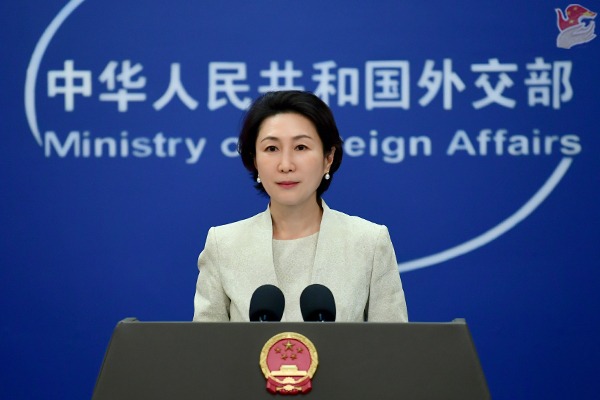African countries praise nation's modernization efforts


In an era where traditional development models are being increasingly questioned, the concept of modernization is being redefined across the Global South. At the 14th Meeting of the China-Africa Think Tanks Forum held on Tuesday in Kunming, Yunnan province, about 100 representatives from China and more than 50 African countries convened to explore how China's modernization experience — characterized by poverty alleviation, grassroots governance, and adaptive policy experimentation — can inspire Africa's own development pathways.
Themed "China-Africa Governance Experience Exchanges and Chinese Modernization", the forum was hosted by the Secretariat of the Chinese Follow-up Committee of the Forum on China-Africa Cooperation, and co-organized by the China-Africa Institute and the Secretariat of the National Top Think Tank of the Chinese Academy of Social Sciences.
"Modernization is a complex journey, unique to each nation's historical, cultural, and socio-economic context. But beneath those differences lies a universal aspiration: to improve lives, eradicate poverty, and build resilient societies," said Elia G. Kaiyamo, ambassador of Namibia to China.
He emphasized that China's remarkable transformation over the past four decades offers invaluable lessons for African countries, demonstrating that modernization is not merely about rapid economic growth but also about fostering social equity, institutional reform, and good governance.
Zhao Yong, an official at the Department of African Affairs in China's Ministry of Foreign Affairs, highlighted the unique bond between China and Africa. "China stands firmly with its African brothers, supporting their modernization and capacity building for self-driven development," he said. Marking the 25th anniversary of the FOCAC, he noted that the mechanism has driven leapfrog growth in China-Africa relations, closely aligning the "Chinese Dream" and its development goals with African Union's Agenda 2063.
From a geopolitical perspective, Ye Hailin, executive president of the China-Africa Institute, said that the rise of developing countries is "an irreversible trend". However, he noted that some Western nations still cling to the Cold War mentality and power politics, further exacerbating global deficits in peace, development, security, and governance. He added that China's development path has inspired African countries to solve local challenges with local solutions.
With years of experience living, studying, and teaching in China since 2005, Hodan Osman Abdi, Somalia's ambassador to China, shared personal reflections on the country's development. She noted that Chinese modernization should not be reduced to GDP growth or infrastructure expansion. "It is about the synchronization of material advancement with cultural confidence, social equity, and environmental protection. It is about lifting lives, not just statistics," she said.
She noted that the partnership between China and Somalia has deep historical roots and is deeply embedded in the hearts of the Somali people. "In the memories of my generation, there is one image that is constant: hard-working Chinese engineers and workers, silently and diligently constructing roads, bridges, and hospitals." In Somalia, the only highway connecting northern and southern Somalia was built by China, and over 80 major infrastructure projects have been carried out with Chinese support. She also highlighted hybrid rice techniques that have brought her country closer to food security.
Phindile Mkwanazi, deputy director-general of the National School of Government of South Africa, recognized China's pragmatic and experimental policy style. For African countries, she emphasized, the goal should be "not to copy, but to build institutions that work in our context, for our people".
Echoing that view, Ethiopian scholar Abdeta Dribssa Beyene, executive director of the Centre for Dialogue, Research and Cooperation in Ethiopia, called for development strategies rooted in mutual learning and local ownership. He cited China's targeted poverty alleviation — lifting over 800 million people out of extreme poverty — as a governance model worthy of close study.
Omar Mjenga, president of the Centre for International Policy in Tanzania, pointed out that China's reputation in Africa stems not from rhetoric but from results. "In the minds of many Africans, China means roads, jobs, and improved livelihoods — delivered without conditions attached," he said.
Following the forum, participants will go on a three-day field visit in Yunnan, to get firsthand insights into China's modernization in action — from rural vitalization and ecological protection to innovation-led growth and grassroots governance.

































